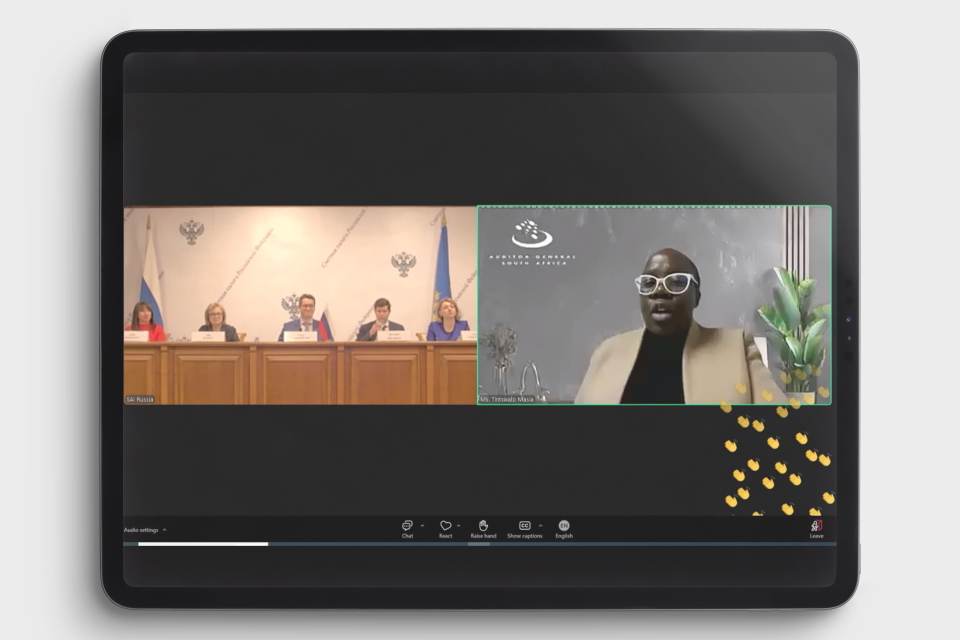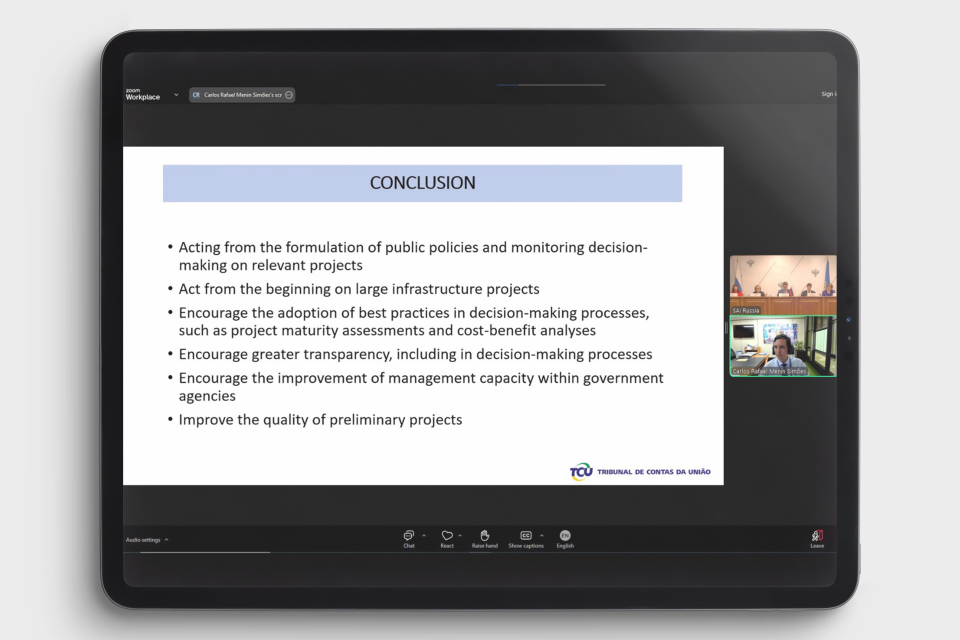Online Seminar Brings Together BRICS Supreme Audit Institutions
Por Secom
On Thursday, November 7, the Federal Court of Accounts of Brazil (TCU) participated in the online seminar 'Audit of Major Infrastructure and Infrastructure Maintenance Projects' held by the BRICS Supreme Audit Institutions group, known as BRICS SAIs. The group includes Brazil, Russia, India, China, South Africa, and, as of this year, also welcomes the United Arab Emirates, Egypt, Ethiopia, and Iran.
The seminar was organized by the supreme audit institution (SAI) of South Africa (AGSA) and was the second of its kind this year. Representing the TCU, the Head of the Department of External Control for Infrastructure, Carlos Rafael Simões, shared the Court's experience in auditing large-scale infrastructure projects. “The TCU's scope is comprehensive, covering everything from public transportation policies to specific infrastructure projects,” he explained.
Simões presented the monitoring process for public works funded by federal resources (Fiscobras), highlighting the TCU's support to the National Congress in elaborating the annual budget and its systematic oversight of Public-Private Partnership (PPP) and concession projects. “At the federal level in Brazil, these projects are submitted to the TCU for review,” he noted. Simões also discussed the current state of infrastructure in Brazil, covering investment trends and related challenges.
He provided examples of the TCU's oversight activities, detailing its systematic monitoring of the National Transport Plan and the analysis of water infrastructure project planning. He highlighted specific oversight areas in partnership projects, such as contractual incentives for investment execution and risk allocation.
Simões also discussed the TCU's performance audits on federal highway concessions, explaining that, through various oversight formats, the Court has promoted the institutionalization of methodological guidelines and best practices, both nationally and internationally, in infrastructure project structuring and investment prioritization, including cost-benefit analyses.
He referenced the TCU's leadership in the Infrastructure Working Group of the Organization of Latin American and Caribbean Supreme Audit Institutions (OLACEFS), recently renamed the Infrastructure and Energy Transition Committee (CoInfra). “This initiative enabled knowledge-sharing and technical documentation, leading the TCU to produce a technical reference framework for concessions and public-private partnerships,” he noted.
In closing, Simões stressed the importance of monitoring projects from their inception, actively participating in decision-making for key initiatives and public policy development. He underscored the need for greater transparency, enhanced managerial capacity within government agencies, and the adoption of best practices in decision-making processes, such as project maturity assessments and cost-benefit analyses.
Besides the TCU, the seminar featured presentations by the SAIs of Russia, which discussed the audit of a water supply infrastructure project; South Africa, sharing lessons from this audit type; China, presenting its experience auditing the 2022 Beijing Games projects; the United Arab Emirates, reviewing capital project audits; and Egypt, discussing its infrastructure project audits.
The TCU's Cooperation within BRICS

BRICS countries maintain a dynamic schedule of meetings across technical forums. For supreme audit institutions (SAIs), meetings occur both at the leadership level and among technical teams on a range of topics. Earlier this year, the TCU led a cybersecurity and data protection seminar.
High-level meetings of BRICS SAIs have been held regularly since 2017. In 2018, the TCU hosted the second leaders’ meeting in Brasília, discussing SAIs' contributions to effective public policies in education, health, and public safety. At the most recent meeting in Ufa, Russia, the TCU was represented by its Vice-President, Minister Vital do Rêgo. Currently, Russia's SAI holds the group's presidency, with the TCU scheduled to assume the role in 2025.
